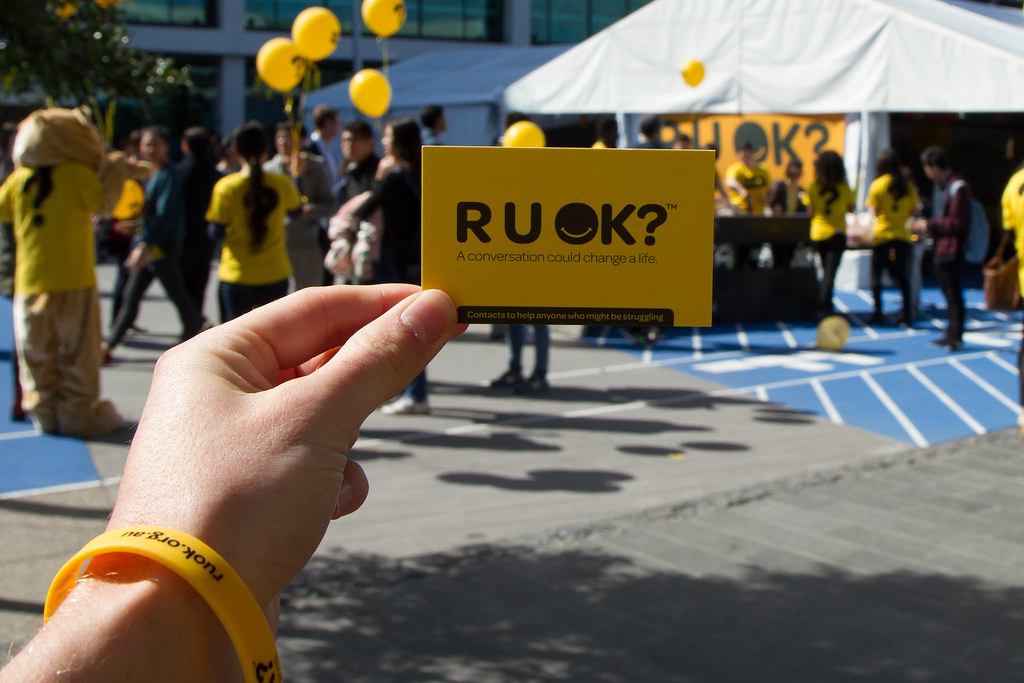Today is R U OK Day, and as lockdowns continue across the east coast of Australia, all communities are being urged to ask each other “are you okay?”
R U OK? Day events are being held virtually across the nation due to ongoing lockdowns and COVID-19 restrictions, with resources becoming more accessible, now including eight languages other than English and tailored material for vulnerable demographics and communities.
New campaigns have been launched alongside the existing ones, focused for the Aboriginal and Torres Strait Islanders, LGBTQIA+ and remote Australian communities.
In a year where Lifeline recorded their highest amount of calls in one day, checking in on each other’s mental health and wellbeing has never been more important. R U OK? Day bosses are highlighting the importance of doing this regularly, not just as a token effort.
“Don’t wait until someone is visibly distressed or in crisis before you ask. If you ask them in a genuine way, your support can make a difference,” says R U OK? CEO Katherine Newton.
“Sometimes it won’t be obvious that someone is struggling, but having the support of family, friends and close colleagues can help us better navigate the challenges that come our way.”
Queensland tradie Justin Geange accredits his life to his boss and friend, who noticed he was struggling.
“I’m here today largely because a mate noticed,” Geange tells Channel 9.
“I was doing it tough and my boss started to notice. I was like a typical bloke, ‘yeah I’m all right’…I wasn’t … He kept nudging. Finally I said ‘I’m struggling. I’m not okay.”
“He said, ‘how about we make a phone call – the key word was we.”
Aussies across the country are being urged to do the same, to ask the people around them if they “really” are okay today.
Indigenous communities have been in focus this year, as suicide rates among Indigenous Australians are currently twice as frequent as the general population, also being the leading cause of death of young Indigenous people aged between 15 and 34 according to the ABS.
Together with NITV, R U OK? launched the “stronger together” campaign, with former NRL star Joe Williams included in the publicity material. Williams is a Wiradjuri man who survived a suicide attempt and is now a mental health advocate.
Dr Vanessa Lee, a social epidemiologist who leads RUOK’s Aboriginal and Torres Strait Islander advisory group, says outreach services that are designed, controlled and run by Indigenous communities is a key element to addressing the issue.
“If government and policymakers actually listened to Aboriginal and Torres Strait Islander people, we would not have such a high prevalence in suicide,” she says, “it’s not rocket science.”
The R U OK website has tips on how to broach the conversation with friends and loved ones, if they do admit they’re struggling. While R U OK? Day occurs once a year, the charity is encouraging Australians to do regular check ins.
The basic steps according to the organisation are:
1. Ask, “R U OK?”
2. Listen
3. Encourage action
4. Check in.
If you or anyone you know is struggling with their mental health, you can find help at:
Lifeline: 13 11 14
Beyond Bluee: 1300 22 4636
Kids Help Line: 1800 55 1800
Suicide Call Back Service: 1300 659 467
Mensline Australia: 1300 78 9978
Photo: by Monash University available here. The image has not been modified.








